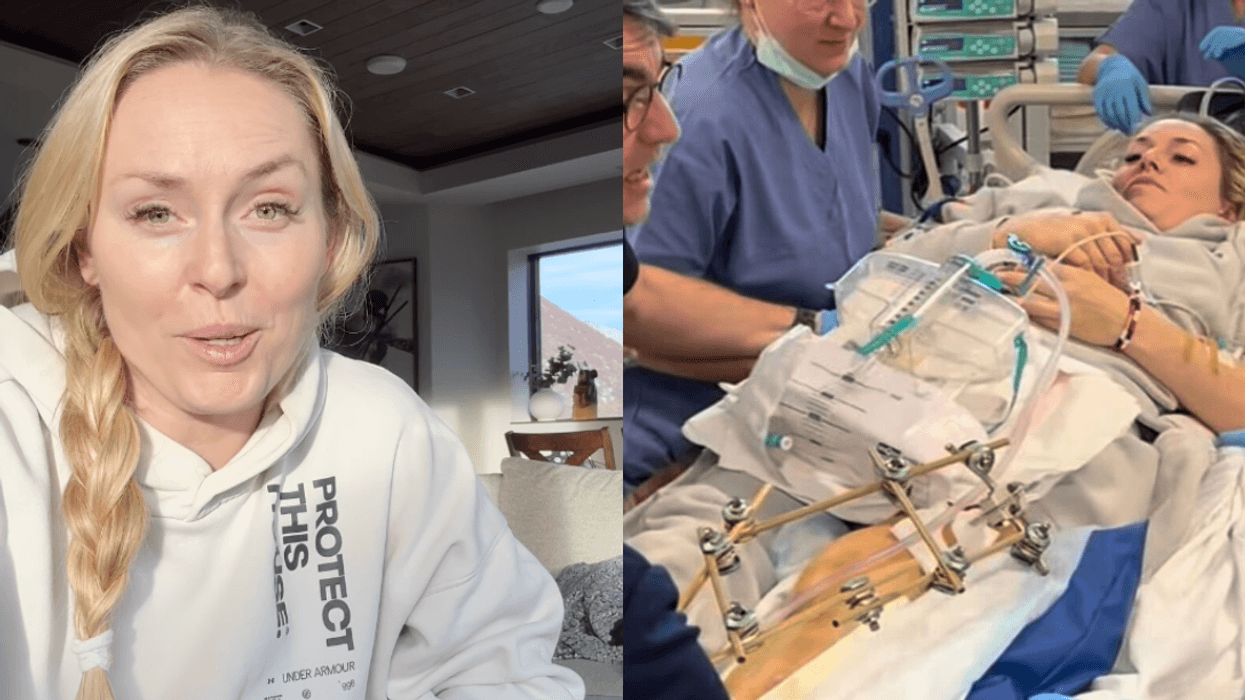Sometimes your first instinct––what you might call common sense––is the wrong one.
For example, believe it or not, you should never try to put out a grease fire by throwing water on it because pouring water can cause the oil to splash and spread the fire. Additionally, vaporizing water can also carry grease particles in it, also spreading the fire. The best way to kill a grease fire is to deprive it of oxygen, so covering your pot or pan with a metal lid (because glass will shatter) means the fire will eventually be starved of oxygen.
The more you know! This fact and more were the basis of today's burning question from Redditor WardOfLucifer, who asked the online community: "What is a situation where 'common sense' will actually make things worse?"
"If someone has something
If someone has something impaled in them do NOT take it out!! You could cause so much more damage and possibly cause them to bleed out faster. Put pressure around the edges of the item and hold the person still while waiting for emergency services.
"Marketing..."
Shopping. Marketing takes advantage of predictable consumer behavior and manipulates you all the time. Consumer 'common sense' just makes you more vulnerable to manipulation.
- X is more expensive than Y, so X must be better quality.
- If X is $100 and Y is $200, Y is expensive. But if X is $100, Y is $200, and Z is $400, Z is expensive and Y is moderately priced.
"When an airplane..."
When an airplane starts stalling and drops in altitude. Anyone who's inexperienced will instinctively pull the nose up which will make you stall even more and probably enter a flat spin. The correct course of action is somewhat counter intuitive and it's to push the nose down to gain airspeed.
"It's tempting..."
Moving someone in a major car accident.
It's tempting to help a passenger out of the car and away from the scene. Unless there's a clear reason to do so, you should leave them in the car and wait for first responders. If there's a spinal injury e.g. a fracture, moving them without a C-spine collar (a stiff collar that holds the neck straight) can result in a spinal cord injury e.g. quadriplegia for life.
"Trying to swim back..."
 Giphy
GiphyTrying to swim back to shore if you're caught in a riptide. You absolutely won't make any progress, and you'll just exhaust yourself. Swim parallel to the shore for a while, until you're out of the current, and then back to shore.
"Predicting what..."
Predicting what other drivers on the road will do next. Safe driving is about expecting the unexpected.
"Removing a motorcyclist's helmet..."
Removing a motorcyclists helmet after a crash. Please don't do this, you could likely paralyse them if the have a neck injury. They will often try to remove their helmet or ask you to because they are dazed and full of adrenaline. Don't touch it, and try not to let them remove it either. (Unless there is something life threatening of course).
"If for whatever reason..."
If for whatever reason you found yourself stranded in the desert and you had some water with you, common sense might lead you to believe you should ration out the water to try and make it last longer. This is the exact opposite of what you should do. Whenever you're thirsty, drink until you're at least quenched. Being thirsty is the first sign of dehydration and you will need to be hydrated for the best odds of survival. Keeping hydrated will help your body cool off and if you get too dehydrated you will become weaker and eventually delirious which is the last thing you want. I've heard of people being found dead in the desert with plenty of water still on them.
"You need to slowly..."
If someone has hypothermia, don't throw them in a hot water bath
You need to slowly bring them back to regular temperatures.
"People tend to tense up..."
Car accidents. People tend to tense up their muscles in anticipation of impact. Its safer to go limp and let the safety devices do their job.
Do you have something to confess to George? Text "Secrets" or " " to +1 (310) 299-9390 to talk to him about it.
" to +1 (310) 299-9390 to talk to him about it.








 reply to @elonmusk/X
reply to @elonmusk/X reply to @elonmusk/X
reply to @elonmusk/X reply to @elonmusk/X
reply to @elonmusk/X reply to @elonmusk/X
reply to @elonmusk/X reply to @elonmusk/X
reply to @elonmusk/X reply to @elonmusk/X
reply to @elonmusk/X reply to @elonmusk/X
reply to @elonmusk/X








 @BasedMikeLee/X
@BasedMikeLee/X @ChrisMurphyCT/X
@ChrisMurphyCT/X @cjoan223817
@cjoan223817

 @wideofthepost/X
@wideofthepost/X @mrmikebones/X
@mrmikebones/X @USA_Polling/X
@USA_Polling/X